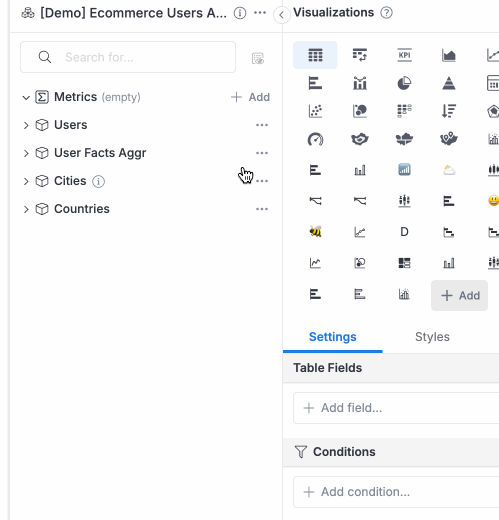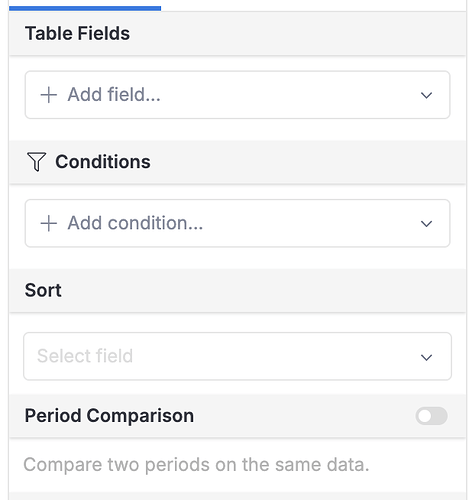Hello - I am trying to create a very basic ad-hoc metric with AQL. I am trying to divide two simple dimensions, but I am getting the error posted below.
Each dimension is modeled in a format like this:
dimension demo_1 {
label: ‘Demo Value1’
type: ‘number’
definition: @sql {{ #SOURCE.demo_example1 }} ;;
format: ‘#,###’
}
AQL like:
inventory.demo_1/inventory.demo_2
Error message:
AQL Compilation Errors:
Invalid expression. Cannot reference non grouped dimension `inventory.demo_1` since it may refers to multiple values
inventory.available_quantity
Full Explore Query: ...
Is this a bug? For now, I will try making the desired ratio a permanent dimension in the model.
1 Like
Hi @Becca_Perry
Thanks for the question. I’m Thomas from Holistics team. Would you able to share with me (or message me privately) more information (screenshots of your AQL & error), the dimensions/metrics you are using in the VizSettings and in the AQL expression?
Thanks for getting back. I think the issue is because your AQL expression contains inventory.available_quantity that is not explicitly dragged into the Table Fields section. Can you go ahead and do that to see if solve the issue?
If you prefer not to have the inventory.available_quantity dimension explicitly in your viz/exploration, can you try to create an ad-hoc dimension with the same formula to see if it work?

Note that if you’re in a Canvas Dashboard, ad-hoc metrics won’t be persisted to models (that’s why we distinguish between ad-hoc metrics and regular metrics). If users explore the report though, then they will see that metric, which is expected if the report uses the metric.
1 Like
Thank you! I struggled with the ad hoc dimensions because I would add them but then not see them anywhere. My colleague pointed out that I would be able to see them if I toggled the setting next to the search bar. Solved it! Now I can make ad hoc measures and dimensions!

1 Like
Thanks for letting us know about this! If you create an ad-hoc dimension/metric in a Reporting dataset, you’ll see that you’ll be navigated to the default dataset view automatically where you can see the newly created ad-hoc dim/metric. It seems like you are creating ad-hoc dims/metrics within Reporting reports, and there’s an issue with this flow at the moment. Let us take a look and get back to you!
1 Like


